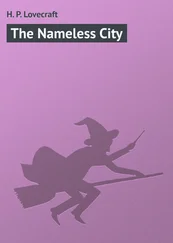Maurus Jokai - The Nameless Castle
Здесь есть возможность читать онлайн «Maurus Jokai - The Nameless Castle» весь текст электронной книги совершенно бесплатно (целиком полную версию без сокращений). В некоторых случаях можно слушать аудио, скачать через торрент в формате fb2 и присутствует краткое содержание. Город: New York, Год выпуска: 1898, Издательство: Doubleday, Page & Company, Жанр: Историческая проза, на английском языке. Описание произведения, (предисловие) а так же отзывы посетителей доступны на портале библиотеки ЛибКат.
- Название:The Nameless Castle
- Автор:
- Издательство:Doubleday, Page & Company
- Жанр:
- Год:1898
- Город:New York
- ISBN:нет данных
- Рейтинг книги:4 / 5. Голосов: 1
-
Избранное:Добавить в избранное
- Отзывы:
-
Ваша оценка:
- 80
- 1
- 2
- 3
- 4
- 5
The Nameless Castle: краткое содержание, описание и аннотация
Предлагаем к чтению аннотацию, описание, краткое содержание или предисловие (зависит от того, что написал сам автор книги «The Nameless Castle»). Если вы не нашли необходимую информацию о книге — напишите в комментариях, мы постараемся отыскать её.
The Nameless Castle — читать онлайн бесплатно полную книгу (весь текст) целиком
Ниже представлен текст книги, разбитый по страницам. Система сохранения места последней прочитанной страницы, позволяет с удобством читать онлайн бесплатно книгу «The Nameless Castle», без необходимости каждый раз заново искать на чём Вы остановились. Поставьте закладку, и сможете в любой момент перейти на страницу, на которой закончили чтение.
Интервал:
Закладка:
“Then you do smoke, Herr Count?”
“Certainly; but I never smoke anywhere but in the nook before mentioned, and never in the clothes I wear ordinarily.”
“Aha!—that a certain person may not detect the fumes, eh?”
“You have guessed it.”
“Then there is not an atom of truth in the reports malicious tongues have spread abroad about you, for I know very well that a certain lady has not the least objection to tobacco smoke. I do not refer to the Herr Count’s donna who lives here in the castle—you may be sure I shall take good care not to ask any more questions about her . No; I am not talking about that one, but about the other one, who has puzzled me a good deal of late. She takes the Herr Count’s part everywhere, and is always ready to defend you. Had she not assured me that I might with perfect safety venture to call here again, I should have sent my secretary to you with the Sigillum compulsorium . I tell you, Herr Count, ardent partizanship of that sort from the other donna looks a trifle suspicious!”
The count laughed, then said:
“Herr Vice-palatine, you remind me of the critic who, at the conclusion of a concert, said to a gentleman near whom he was standing: ‘Who is that lady who sings so frightfully out of tune?’ ‘The lady is my wife.’ ‘Ah, I did not mean the one who sang, but the lady who accompanied her on the piano—the one who performs so execrably.’ ‘That lady is my sister.’ ‘I beg a thousand pardons! I made a mistake; it is the music, the composition, that is so horrible. I wonder who composed it?’ ‘I did.’ ”
Herr Bernat was charmed—completely vanquished. This count not only smoked: he could also relate an anecdote! Truly he was a man worth knowing—a gentleman from crown to sole.
Toward the conclusion of the excellent dinner, to which Herr Bernat did ample justice, he ventured to propose a toast:
“I cannot refrain, Herr Count, from drinking to the welfare of this castle’s mistress; and since I do not know whether there be one or two, I lift a glass in each hand. Vivant!”
Without a word the count likewise raised two glasses, and drained first one, then the other, leaving not enough liquor in either to “wet his finger-nail.”
By the time the meal was over Herr Bernat was in a most generous mood; and when he took leave of his agreeable host, he assured him that the occupants of the Nameless Castle might always depend on the protection and good will of the vice-palatine.
Count Vavel waited until his guest was out of sight; then he changed his clothes, and when the regular dinner-hour arrived joined Marie, as usual, in the dining-room, to enjoy with her the delicate snail-soup and other dainties.
CHAPTER III
At last war was declared; but it brought only days of increased unhappiness and discontent to the tiger imprisoned in his cage at the Nameless Castle—as if burning oil were being poured into his open wounds.
The snail-like movements of the Austrian army had put an end to the appearance of the apocalyptic destroying angel.
Ludwig Vavel waited like the tiger crouched in ambush, ready to spring forth at the sound of his watchword, and heard at last what he had least expected to hear.
The single-headed eagle had not hesitated to take possession of that which the double-headed eagle had hesitated to grasp.
Napoleon had issued his memorable call to the Hungarian people to assert their independence and choose their king from among themselves.
Count Ludwig received a copy of this proclamation still damp from the press, and at once decided that the cause to which he had sacrificed his best years was wholly lost.
He was acquainted with but a few of the people among whom he dwelt in seclusion, but he believed he knew them well enough to decide that the incendiary proclamation could have no other result than an enthusiastic and far-reaching response. All was at an end, and he might as well go to his rest!
In one of his gloomiest, most dissatisfied hours, he heard the sound of a spurred boot in the silent corridor.
It was an old acquaintance, the vice-palatine. He did not remove his hat, which was ornamented with an eagle’s feather, when he entered the count’s study, and ostentatiously clinked the sword in its sheath which hung at his side. A wolfskin was flung with elaborate care over his left shoulder.
“Well, Herr Count,” he began in a cheery tone, “I come like the gypsy who broke into a house through the oven, and, finding the family assembled in the room, asked if they did not want to buy a flue-cleanser. At last the watchword has arrived: ‘To horse, soldier! To cow, farmer.’ The militia law is no longer a dead letter. We shall march, cum gentibus , to repulse the invading foe. Here is the royal order, and here is the call to the nation.” [3] Written by Alexander Kisfalndy, by order of the palatine. A memorable document.
Count Vavel’s face at these words became suddenly transfigured—like the features of a dead man who has been restored to life. His eyes sparkled, his lips parted, his cheeks glowed with color—his whole countenance was eloquent; his tongue alone was silent.
He could not speak. He rushed toward his sword, which was hanging on the wall, tore it from its sheath, and pressed his lips to the keen blade. Then he laid it on the table, and dashed like a madman from the room—down the corridor to Marie’s apartment. Without knocking, he opened the door, rushed toward the young girl, raised her in his arms as if she were a little child, and, carrying her thus, returned to his guest. “Here—here she is!” he cried breathlessly. “Behold her! Now you may look on her face—now the whole world may behold her countenance and read in it her illustrious descent. This is my idol—my goddess, for whom I have lived, for whom I would die!”
He had placed the maid on a sort of throne between the two bookcases, and alternately kissed the hem of her gown and his sword.
“Can you imagine a more glorious queen?” he demanded, in a transport of ecstasy, flinging one arm over the vice-palatine’s shoulder, and pointing with the other toward the confused and blushing girl. “Is there anywhere else on earth so much love, so much goodness and purity, a glance so benevolent—all the virtues God bestows upon his favorites? Is not this the angel who has been called to destroy the Leviathan of the Apocalypse?”
The vice-palatine gazed in perplexity at the young girl, then said in a low tone:
“She is the image of the unfortunate Queen, Marie Antoinette, who looked just like that when she was a bride.”
Involuntarily Marie lifted her hands and hid her face behind them. She had grown accustomed to the piercing rays of the sun, but not to the questioning glances from strange eyes.
“What—what does—this mean, Ludwig?” she stammered, in bewilderment. “I don’t understand you.”
Count Vavel stepped to the opposite side of the room, where a large map concealed the wall. He drew a cord, and the map rolled up, revealing a long hall-like chamber, which, large as it was, was filled to the ceiling with swords, firearms, saddles, and harness.
“I will equip a company of cavalry, and command it myself. The entire equipment, to the last cartridge, is ready here.”
He conducted the vice-palatine into the arsenal, and exhibited his terrible treasures.
“Are you satisfied with my preparations for war?” he asked.
“I can only reply as did the poor little Saros farmer when his neighbor, a wealthy landowner, told him he expected to harvest two thousand yoke of wheat: ‘That is not so bad.’ ”
“Now I intend to hold a Lustration, Herr Vice-palatine,” resumed the count. “Here are weapons. Are enough men and horses to be had for the asking?”
Читать дальшеИнтервал:
Закладка:
Похожие книги на «The Nameless Castle»
Представляем Вашему вниманию похожие книги на «The Nameless Castle» списком для выбора. Мы отобрали схожую по названию и смыслу литературу в надежде предоставить читателям больше вариантов отыскать новые, интересные, ещё непрочитанные произведения.
Обсуждение, отзывы о книге «The Nameless Castle» и просто собственные мнения читателей. Оставьте ваши комментарии, напишите, что Вы думаете о произведении, его смысле или главных героях. Укажите что конкретно понравилось, а что нет, и почему Вы так считаете.












